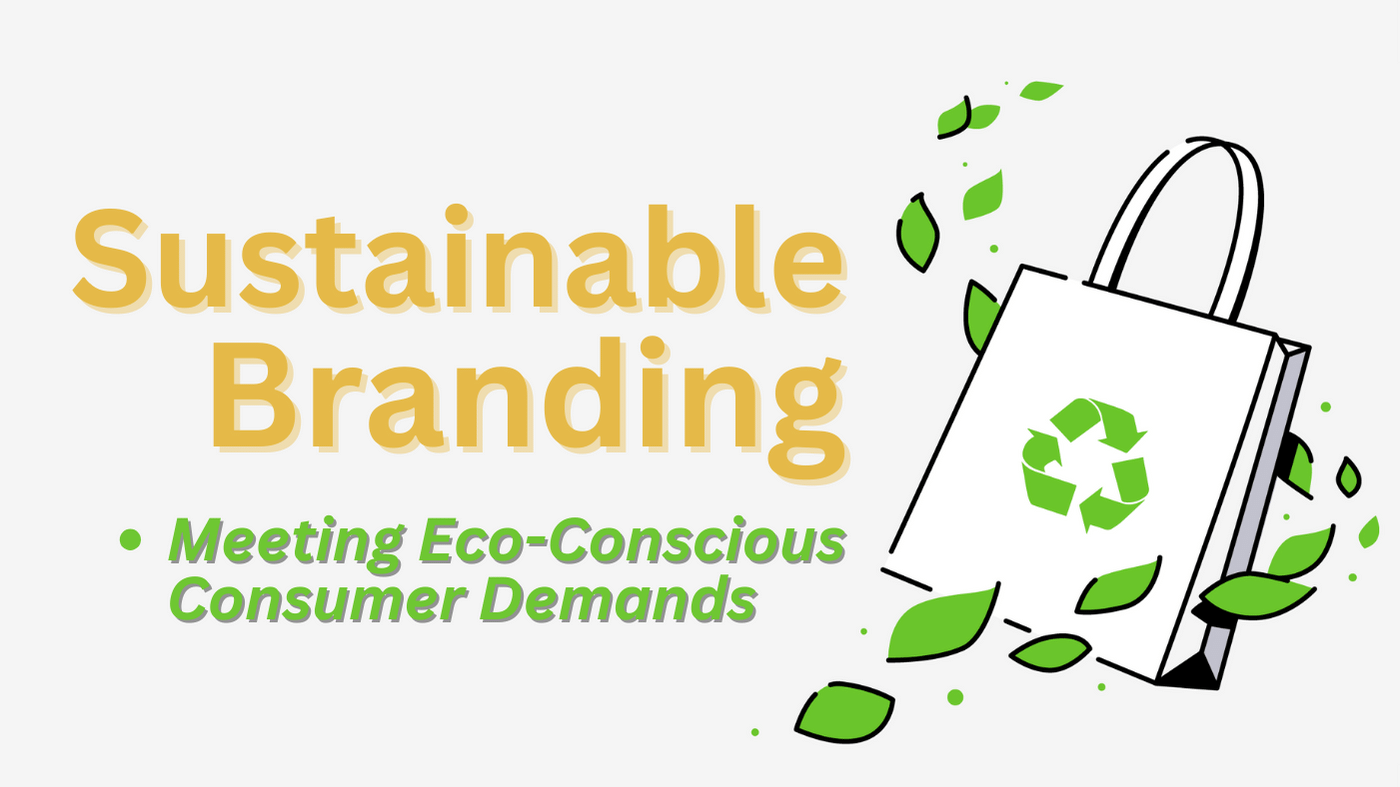Sustainable Branding: How to Meet Eco-Conscious Consumer Demands
Sustainable Branding: Meeting Eco-Conscious Consumer Demands
In today’s rapidly evolving market, where consumer consciousness is more heightened than ever, sustainable branding has emerged not just as a trend but as an essential strategy for businesses aiming to thrive. As consumers increasingly prioritize environmental and social issues, companies are compelled to adapt by integrating sustainability into their core practices and communication strategies. This article delves into the significance of sustainable branding and offers insights on how businesses can effectively meet eco-conscious consumer demands, thereby securing a competitive edge in the market.

Understanding Sustainable Branding
Understanding sustainable branding involves recognizing it as a holistic approach that intertwines environmental stewardship, social responsibility, and ethical practices with a company’s brand identity, operations, and communication. This approach goes beyond mere green marketing tactics, aiming to embed sustainability into the very fabric of a brand’s existence. Sustainable branding is not about using sustainability as a superficial selling point; instead, it’s about making a genuine commitment to positive environmental and social impact, which in turn shapes the perception, values, and actions of the brand.
At its core, sustainable branding reflects a company’s dedication to reducing its ecological footprint, engaging in fair labor practices, supporting community development, and ensuring the longevity and health of our planet for future generations. It requires a shift from traditional, profit-only focused business models to more responsible, transparent, and sustainable practices. This shift is not only about adhering to regulatory requirements but also about seizing the opportunity to innovate, improve efficiency, and build a strong, positive brand image that resonates with today’s eco-conscious consumers.
For a brand to be truly sustainable, it must:
- Integrate Sustainability into Its Core Values: This means that sustainability is not just an add-on or a marketing gimmick but a fundamental aspect of the brand’s mission and vision.
- Practice Transparency: Brands must be open about their sustainability efforts, including the successes and the challenges. This involves clear communication about sourcing, production processes, and the environmental and social impacts of their products or services.
- Ensure Accountability: Setting measurable sustainability goals and regularly reporting on progress towards these goals is crucial for accountability.
- Foster Consumer Engagement: Sustainable branding involves educating and engaging with consumers about sustainability issues and how they can contribute to positive change through their purchasing decisions.
- Drive Innovation: From product design and packaging to supply chain management, sustainable branding encourages innovation to reduce environmental impact and improve social outcomes.
Sustainable branding is thus a dynamic, ongoing process that requires a commitment to continuous improvement and adaptation to new sustainability challenges and opportunities. It’s about creating value that extends beyond the immediate benefits to the company, reaching out to positively affect the community, the environment, and the broader society. By adopting sustainable branding, businesses not only meet the demands of eco-conscious consumers but also contribute to the creation of a more sustainable and equitable world..
The Rise of the Eco-Conscious Consumer
The eco-conscious consumer is at the heart of the shift towards sustainable branding. This demographic values transparency, authenticity, and ethical consumption. They are willing to invest in brands that demonstrate a genuine commitment to sustainability, often paying a premium for products and services that align with their environmental and social values.
Why Sustainable Branding Matters
- Enhanced Brand Image and Reputation: Sustainable branding helps in building a positive brand image, fostering trust and loyalty among consumers.
- Competitive Advantage: Differentiating your brand through sustainability can set you apart in a crowded market.
- Regulatory Compliance: As governments worldwide impose stricter environmental regulations, adopting sustainable practices ensures compliance and reduces the risk of penalties.
- Financial Performance: Companies with strong sustainability commitments often see improved financial performance due to increased efficiency, reduced costs, and a loyal customer base.
Strategies for Effective Sustainable Branding
1. Authenticity Is Key
To truly resonate with eco-conscious consumers, brands must ensure their sustainability efforts are genuine and not just superficial greenwashing. This involves setting clear, measurable sustainability goals and transparently communicating progress towards these objectives.
2. Engage with Your Audience
Building a community around shared values is crucial. Engage with your audience through social media, sustainability reports, and community initiatives. Listening to their feedback and involving them in your sustainability journey fosters a deeper connection.
3. Innovate for Sustainability
Innovation in product design, packaging, and supply chain management can significantly reduce environmental impact. Offering products that are durable, recyclable, or made from sustainable materials appeals to eco-conscious consumers.
4. Partner with Sustainable Organizations
Collaborating with environmental organizations or obtaining certifications from recognized sustainability bodies can enhance your brand’s credibility and demonstrate your commitment to sustainability.
5. Educate Your Consumers
Many consumers are eager to make more sustainable choices but may lack the necessary information. Educate your audience about the environmental and social benefits of your products or services, empowering them to make informed decisions.
6. Leverage Digital Marketing
Digital marketing offers a powerful platform for sustainable branding. Use your online presence to share your sustainability story, highlight eco-friendly initiatives, and promote sustainable living tips.
7. Measure and Report
Regularly measuring and reporting on your sustainability performance not only helps in tracking progress but also builds trust with consumers. Transparent reporting on successes and challenges reinforces the authenticity of your efforts.
8. Foster a Sustainable Corporate Culture
Sustainable branding starts from within. Foster a corporate culture that embraces sustainability at all levels of the organization. Employee engagement in sustainability initiatives can amplify your efforts and authentically reflect your brand’s values.
9. Focus on Long-Term Impact
Sustainable branding is a long-term commitment. Focus on making a positive impact on the planet and society, rather than short-term gains. This long-term perspective is key to building a sustainable brand that stands the test of time.
10. Continuously Improve
Sustainability is an evolving field. Stay informed about new trends, technologies, and practices that can enhance your sustainability efforts. Continuously seeking improvement demonstrates a proactive approach to sustainability.
Conclusion
Sustainable branding is not just a marketing strategy but a comprehensive approach that reflects a company’s commitment to making a positive impact on the world. By meeting eco-conscious consumer demands through authentic, innovative, and transparent practices, businesses can not only enhance their brand image and competitive advantage but also contribute to a more sustainable future. As we move forward, the importance of sustainable branding will only continue to grow, making it an indispensable element of business strategy for companies aiming to succeed in an increasingly conscious marketplace.
Author






